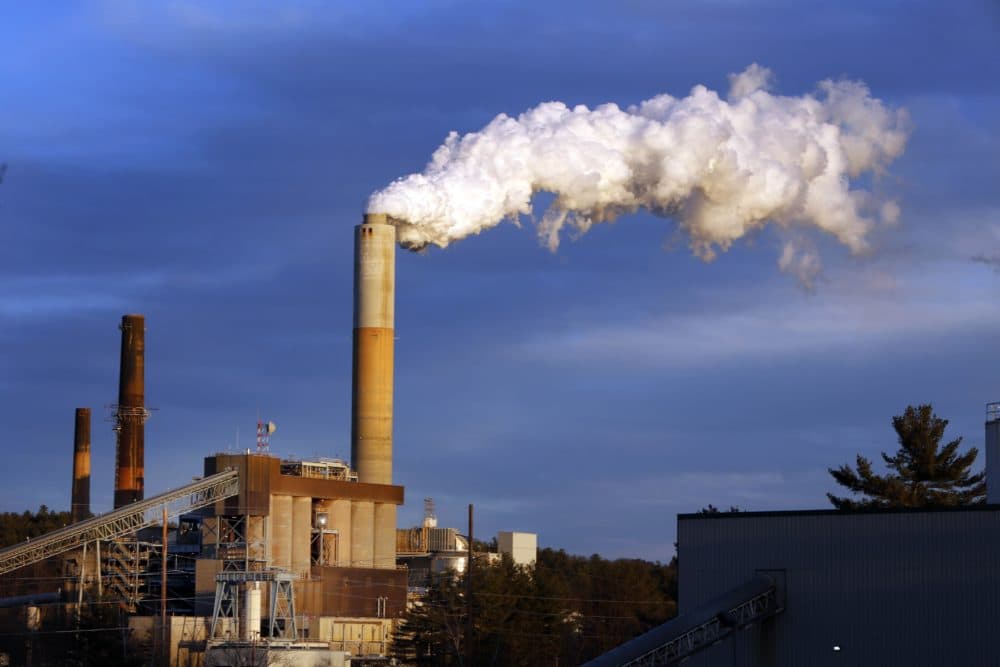Advertisement
EPA Changes Another Emissions Rule; This Time It's About Mercury

The federal Environmental Protection Agency (EPA) on Thursday announced changes to a rule that restricts mercury emissions from coal- and oil-fired power plants. While the Obama-era Mercury and Air Toxics Standards (MATS) will remain in place, the EPA will change the way they calculate both the costs and benefits of emission control.
This marks at least the third federal policy change in the last month that may have far-reaching consequences for air quality in Massachusetts. And it comes amid emerging evidence linking air pollution to higher rates of death from COVID-19.
“Under this action, no more mercury will be emitted into the air than before,” said EPA Administrator Andrew Wheeler in a statement. “This is another example of the EPA, under the Trump Administration, following the law while making reasonable regulatory decisions that are fully protective of the public health and environment.”
Critics argues that the changes weaken the mercury standards and leaves them vulnerable to legal challenges.
“That rule was about protecting our kids, protecting pregnant women from dangers associated with mercury and lead and other toxic pollution. It's literally been working for now for years,” says Gina McCarthy, head of the EPA under President Barack Obama and now president of the Natural Resources Defense Council, an environmental advocacy non-profit. She says that the Trump administration made the changes “solely for the purpose of making sure that it's harder in the future to regulate effectively to protect public health and safety.”
In an article in the journal Science, a team of researchers led by Joseph Aldy at Harvard questioned the EPA's new calculations. The authors say that EPA’s analysis fails to account for recent science identifying health benefits from reducing mercury emissions, and also ignores changes in the electricity sector that have reduced the number of power plants that must install pollution equipment.
They call the rollback “an unfortunate way to mark the 50th anniversary of the Clean Air Act."
Massachusetts Attorney General Maura Healey issued a statement condemning the policy change, and said she is prepared to fight it in court. "Recent research has linked long-term exposure to harmful particulate matter pollution with increased coronavirus deaths. The MATS Rule has been instrumental in reducing not only mercury and air toxics, but deadly particulate matter pollution, as well," said Healey in the statement. "It is shocking that in the midst of a global health crisis, the Trump Administration is putting the public at further risk in order to fatten the wallets of coal lobbyists and placate polluters."
Mercury is a natural-occurring element, but in high doses can harm the brain, heart, kidneys, lungs, and immune system. Coal-burning power plants are the largest source of airborne mercury emissions in the United States, according to the EPA, accounting for about 44% of the overall mercury emissions produced by humans.
This article was originally published on April 16, 2020.
